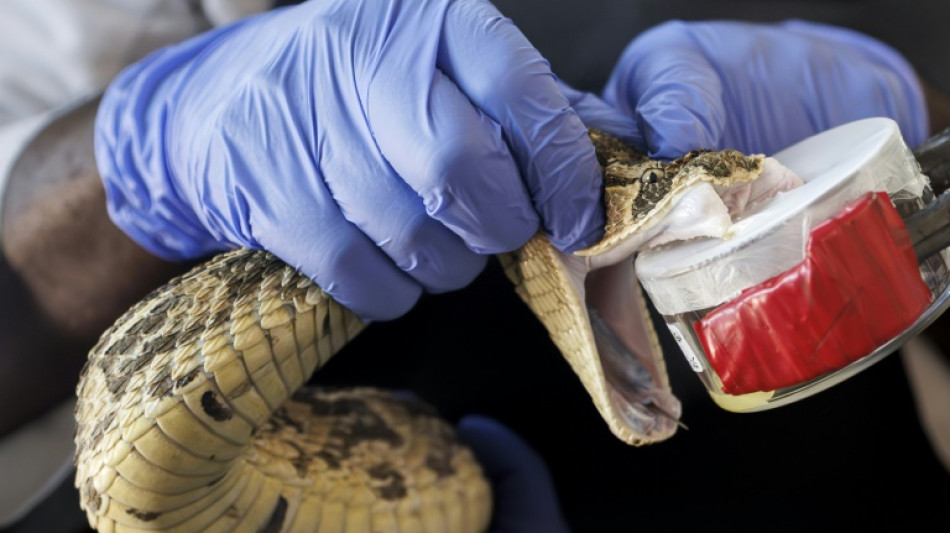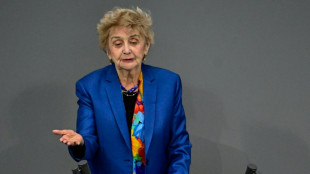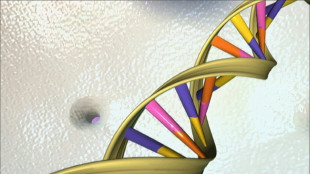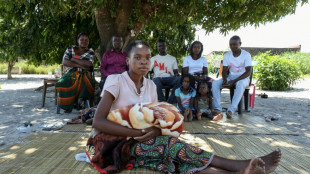
-
 Barcelona rout Copenhagen to reach Champions League last 16
Barcelona rout Copenhagen to reach Champions League last 16
-
Liverpool, Man City and Barcelona ease into Champions League last 16

-
 Tesla profits tumble on lower EV sales, AI spending surge
Tesla profits tumble on lower EV sales, AI spending surge
-
Real Madrid face Champions League play-off after Benfica loss

-
 LA mayor urges US to reassure visiting World Cup fans
LA mayor urges US to reassure visiting World Cup fans
-
Madrid condemned to Champions League play-off after Benfica loss

-
 Meta shares jump on strong earnings report
Meta shares jump on strong earnings report
-
Haaland ends barren run as Man City reach Champions League last 16

-
 PSG and Newcastle drop into Champions League play-offs after stalemate
PSG and Newcastle drop into Champions League play-offs after stalemate
-
Salah ends drought as Liverpool hit Qarabag for six to reach Champions League last 16

-
 Barca rout Copenhagen to reach Champions League last 16
Barca rout Copenhagen to reach Champions League last 16
-
Arsenal complete Champions League clean sweep for top spot

-
 Kolo Muani and Solanke send Spurs into Champions League last 16
Kolo Muani and Solanke send Spurs into Champions League last 16
-
Bayern inflict Kane-ful Champions League defeat on PSV

-
 Pedro double fires Chelsea into Champions League last 16, dumps out Napoli
Pedro double fires Chelsea into Champions League last 16, dumps out Napoli
-
US stocks move sideways, shruggging off low-key Fed meeting

-
 US capital Washington under fire after massive sewage leak
US capital Washington under fire after massive sewage leak
-
Anti-immigration protesters force climbdown in Sundance documentary

-
 US ambassador says no ICE patrols at Winter Olympics
US ambassador says no ICE patrols at Winter Olympics
-
Norway's Kristoffersen wins Schladming slalom

-
 Springsteen releases fiery ode to Minneapolis shooting victims
Springsteen releases fiery ode to Minneapolis shooting victims
-
Brady latest to blast Belichick Hall of Fame snub

-
 Trump battles Minneapolis shooting fallout as agents put on leave
Trump battles Minneapolis shooting fallout as agents put on leave
-
SpaceX eyes IPO timed to planet alignment and Musk birthday: report

-
 White House, Slovakia deny report on Trump's mental state
White House, Slovakia deny report on Trump's mental state
-
Iran vows to resist any US attack, insists ready for nuclear deal

-
 Colombia leader offers talks to end trade war with Ecuador
Colombia leader offers talks to end trade war with Ecuador
-
Former Masters champ Reed returning to PGA Tour from LIV

-
 US Fed holds interest rates steady, defying Trump pressure
US Fed holds interest rates steady, defying Trump pressure
-
Norway's McGrath tops first leg of Schladming slalom

-
 Iraq PM candidate Maliki denounces Trump's 'blatant' interference
Iraq PM candidate Maliki denounces Trump's 'blatant' interference
-
Neil Young gifts music to Greenland residents for stress relief

-
 Rubio upbeat on Venezuela cooperation but wields stick
Rubio upbeat on Venezuela cooperation but wields stick
-
'No. 1 fan': Rapper Minaj backs Trump

-
 Fear in Sicilian town as vast landslide risks widening
Fear in Sicilian town as vast landslide risks widening
-
'Forced disappearance' probe opened against Colombian cycling star Herrera

-
 Seifert, Santner give New Zealand consolation T20 win over India
Seifert, Santner give New Zealand consolation T20 win over India
-
King Charles III warns world 'going backwards' in climate fight

-
 Minneapolis activists track Trump's immigration enforcers
Minneapolis activists track Trump's immigration enforcers
-
Court orders Dutch to protect Caribbean island from climate change

-
 Sterling agrees Chelsea exit after troubled spell
Sterling agrees Chelsea exit after troubled spell
-
Rules-based trade with US is 'over': Canada central bank head

-
 Lucas Paqueta signs for Flamengo in record South American deal
Lucas Paqueta signs for Flamengo in record South American deal
-
Holocaust survivor urges German MPs to tackle resurgent antisemitism

-
 'Extraordinary' trove of ancient species found in China quarry
'Extraordinary' trove of ancient species found in China quarry
-
Villa's Tielemans ruled out for up to 10 weeks

-
 Google unveils AI tool probing mysteries of human genome
Google unveils AI tool probing mysteries of human genome
-
UK proposes to let websites refuse Google AI search

-
 'I wanted to die': survivors recount Mozambique flood terror
'I wanted to die': survivors recount Mozambique flood terror
-
Trump issues fierce warning to Minneapolis mayor over immigration


Kenya's desperate need for more snake antivenom
Writhing in pain on a hospital bed in a Kenyan coastal town, teenage snakebite victim Shukurani Konde Tuva faced the grim reality of his left leg from above the knee being amputated.
The 14-year-old was bitten by a puff adder -- a venomous snake and the most common snakebite in sub-Saharan Africa -- while eating outdoors in his village near the town of Malindi more than a month ago.
His family rushed him to hospital two hours away by motorbike, but the antivenom he received did not help.
"My son's leg is totally rotten and maggots are even emanating from it. They'll have to cut it," said his distraught mother, Mariamu Kenga Kalume.
Some 5.4 million people are bitten by snakes each year globally and roughly half are poisoned by venom, according to World Health Organization (WHO) data.
Up to 138,000 people die and 400,000 suffer permanent physical effects, though the WHO says the numbers are a "gross underestimation" since an estimated 70 percent of cases go unreported.
Traditional beliefs and myths skew the data as some victims turn to home-grown remedies or attribute bites to voodoo "sent by their enemies" instead of seeking medical care.
- 'Snake stone' -
A few kilometres (miles) from where Shukurani lay in pain, traditional healer Douglas Rama Bajila showed AFP the concoctions he uses to "suck out" venom.
One popular remedy is the "snake stone", made from a cow's bone and sold for about $1.
Bajila said it can be reused multiple times: it simply needs to be soaked in milk for a few hours to "recharge".
One was placed on Shukurani's leg as he was transported to hospital but unfortunately fell off along the way, his mother said.
Experts worry that by using traditional snakebite remedies, patients are losing precious time but they are popular because antivenom treatments are expensive.
Antivenoms cost up to 8,000 shillings (about $62) per vial, and some patients require as many as 20 doses.
Ruth Kintalel, 30, from a pastoralist community in Kajiado county near the capital Nairobi, said she spent over five months in hospital after a red spitting cobra bit her in her sleep.
"My husband sold our livestock to cover the rising hospital bill," said Kintalel, who is still paralysed in her right arm seven years later.
- 'Bad reactions' -
Experts say Kenya receives between 10,000 and 30,000 vials of antivenom per year and needs 100,000.
Antivenom is made by "milking" venom from the fangs of snakes, which is then diluted and injected in small doses into animals such as horses, which produce antibodies that can be extracted for use in humans.
Using snakes from different regions, even of the same species, can reduce the effectiveness of the antivenom and cause "really bad reactions", said Kyle Buster Ray, a curator at the Watamu Snake Farm on the Kenyan coast.
Kenya's stock of antivenom is not always effective because much comes from other countries like India, he said.
His farm houses over 400 venomous and non-venomous snakes and seeks to re-establish faith in antivenom that has been undermined by too many shoddy treatments.
It offers free antivenom to critical cases locally, but stocks are limited.
The farm also trains communities in life-saving snakebite responses.
During a session attended by AFP, about half the community said they had been bitten at least once, and nearly all had initially turned to traditional medicines.
Many showed signs of paralysis, with one suffering partial blindness.
- 'Trauma' -
In Nairobi, the Snakebite Research and Intervention Centre within the Kenya Institute of Primate Research is working on an antivenom specific to the country and applicable to multiple species.
Valentine Musabyimana, a research fellow at the institute, said they "are aiming for an antivenom where a patient will require only one vial with great potency".
Government subsidies should make it affordable, she hopes, though it is expected to take about two years before the antivenom is available.
That is too late for 14-year-old Shukurani.
At the snake farm, Ray warned that the boy faced psychological as well as physical consequences.
"Someone has watched their limb completely rot... there's a lot of mental trauma," Ray said.
T.Suter--VB



